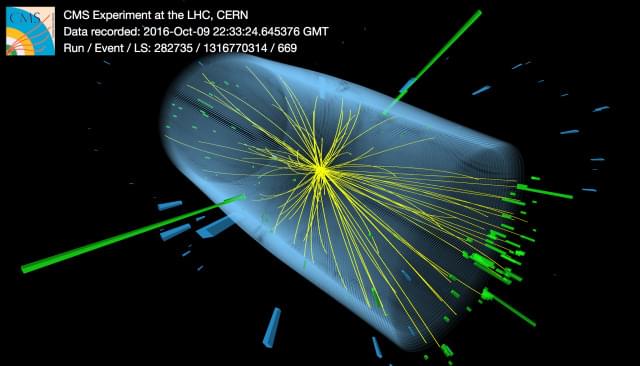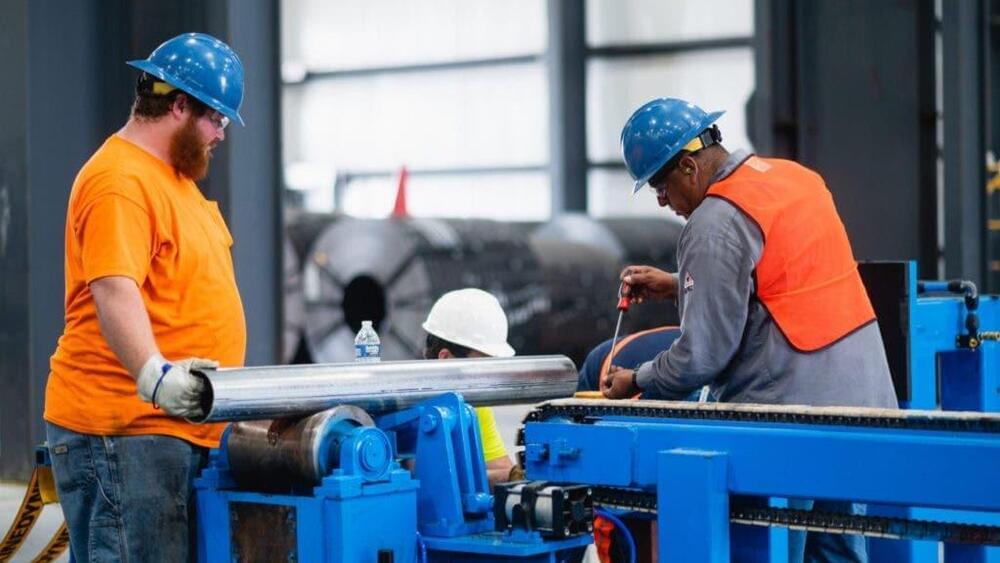Scientists at Northwestern University have developed a small, flexible implant that can relieve pain on-demand and disappear into the body’s biofluids.


You and your business can try Onshape for free at https://Onshape.pro/DesignTheory. With recent advancements in Artificial Intelligence design tools, we are about to see the biggest creative and cultural explosion since the invention of electricity in the 1890s. By the end of this video, you will have a better understanding of how artificial intelligence will impact design, engineering, creativity, and culture as a whole. AI is a revolutionary game changer in design!
Become a patron of my channel on Patreon: https://www.patreon.com/JohnMauriello.
Form Fundamentals Online Industrial Design Course: https://bit.ly/335vsqO.
Want to learn more about my work? Check out my portfolio: https://www.studioello.com.
Want to work with me on a design project? Contact me here: https://www.studioello.com/about-1
CREDITS:

Atoms are all about a tenth of a billionth of a meter wide (give or take a factor of 2). What determines an atom’s size? This was on the minds of scientists at the turn of the 20th century. The particle called the “electron” had been discovered, but the rest of an atom was a mystery. Today we’ll look at how scientists realized that quantum physics, an idea which was still very new, plays a central role. (They did this using one of their favorite strategies: “dimensional analysis”, which I described in a recent post.)
Since atoms are electrically neutral, the small and negatively charged electrons in an atom had to be accompanied by something with the same amount of positive charge — what we now call “the nucleus”. Among many imagined visions for what atoms might be like was the 1904 model of J.J. Thompson, in which he imagined the electrons are embedded within a positively-charged sphere the size of the whole atom.
But Thompson’s former student Ernest Rutherford gradually disproved this model in 1909–1911, through experiments that showed the nucleus is tens of thousands of times smaller (in radius) than an atom, despite having most of the atom’s mass.

Researchers at North Carolina State University show that an important gene in maize called HPC1 modulates certain chemical processes that contribute to flowering time, and has its origins in “teosinte mexicana,” a precursor to modern-day corn that grows wild in the highlands of Mexico. The findings provide insight into plant evolution and trait selection, and could have implications for corn and other crops’ adaptation to low temperatures.
“We are broadly interested in understanding how natural variation of lipids are involved in the growth and development of plants, and how these compounds may help plants adapt to their immediate environments,” said Rubén Rellán-Álvarez, assistant professor of structural and molecular biochemistry at NC State and the corresponding author of a paper describing the research. “Specifically, we wanted to learn more about variation in lipids called phospholipids, which consist of phosphorus and fatty acids, and their role in adaptation to cold, low phosphorus, and the regulation of important processes for plant fitness and yield like flowering time.”
Maize grown at higher altitudes, like the highlands of Mexico, needs special accommodations in order to grow successfully. The colder temperatures in these mountainous regions put maize at a slight disadvantage when compared with maize grown at lower elevations and higher temperatures.

If you’re ready for connectivity on the move, SpaceX’s Starlink satellite broadband may soon be the answer. The US Federal Communications Commission on Thursday gave the internet provider the greenlight to provide service on moving vehicles, boats and planes.
The new authority should help SpaceX meet “the growing user demands that now require connectivity while on the move,” wrote FCC international bureau chief Tom Sullivan wrote in the approval, “whether driving an RV across the country, moving a freighter from Europe to a U.S. port, or while on a domestic or international flight.”
Earlier this year, Starlink began selling Starlink for RVs, but the service wasn’t designed to work on the move — it was intended for users traveling to areas with slow or no broadband alternatives.

An artificial intelligence can now predict the location and rate of crime across a city a week in advance with up to 90 per cent accuracy. Similar systems have been shown to perpetuate racist bias in policing, and the same could be true in this case, but the researchers who created this AI claim that it can also be used to expose those biases.
Ishanu Chattopadhyay at the University of Chicago and his colleagues created an AI model that analysed historical crime data from Chicago, Illinois, from 2014 to the end of 2016, then predicted crime levels for the weeks that followed this training period.
The model predicted the likelihood of certain crimes occurring across the city, which was divided into squares about 300 metres across, a week in advance with up to 90 per cent accuracy. It was also trained and tested on data for seven other major US cities, with a similar level of performance.

This is Nextracker’s third new factory, adding to the company’s new Texas and Arizona factories announced in April and May, towards building 10 GW of annual domestic solar tracker capacity. Courtesy of Nextracker — by Pallavi Singla.
Nextracker LLC, the global market leader in utility-scale solar trackers, and BCI Steel, a Pittsburgh-based steel fabricator, this week announced the reopening of the historic Bethlehem Steel manufacturing factory in nearby Leetsdale to produce solar tracker equipment for large-scale solar power plants.
The steel processing plant will incorporate both BCI Steel’s new and reshored equipment shipped to the U.S. from factories in Malaysia and Brazil. Solar tracker products produced at the factory will serve rapidly growing solar markets in Pennsylvania, Indiana, New York, and Ohio.
“BCI is proud to advance Pittsburgh’s legacy as the heart of America’s steel industry,” said Matt Carroll, CEO of BCI Steel. “This partnership with Nextracker showcases our steel fabrication and quality control technology and unlocks additional domestic solar capacity with our low-cost manufacturing.”
After two years of disruptions, sales of industrial robots increased worldwide in 2021, said the IFR. The organization said demand in Asia and Australia grew the most.

